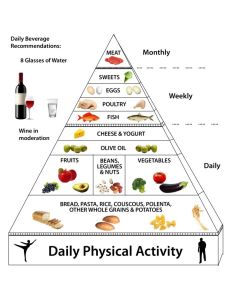Antioxidant: the buzz word of the twenty first century. Face creams, super foods and supplements are all products advertised on a daily basis, claiming to contain the modern day miracle and answer to health and ageing. But what are antioxidants, and what do they actually do?
Antioxidants are the enzymes found in vitamins that we eat. They obstruct the oxidation process in cells, protecting the body from the destructive effects of free radicals. Free radicals are left over from chemical processes that have already happened in the body. They are damaging to human health because they attack healthy cells, changing their DNA, which allows tumours to grow. This can lead to cell mutation and the form of cancerous cells in the body.
So what is the effect of antioxidants in our immune system?
‘Scientists now believe that free radicals are causal factors in nearly every known disease, from heart disease to arthritis to cancer to cataracts. In fact, free radicals are a major culprit in the aging process itself’ Dr. Lester Packer
The immune systems works as a response to defend the body against a specific resistance, and the effect of free radicals on the immune system can be extremely detrimental. As a result of chemical processes, the human body is constantly creating a high rate of free radicals, which have been recorded to attack a single cell in the body up to 10,000 times in a day. As they are mainly composed of oxygen (the element in which every individual must respire in order to live) the formation of the free radicals is ultimately unavoidable. With the prevalence of cancer expected to double by 2020 (WHO) the consumption antioxidants could not be any more important.
Research done by the National Cancer Institute (NCI) has led to belief that vitamin A could possibly protect against formation or development of cancers.
In the body, beta-carotene is converted into the nutrient vitamin A, which increases levels of white blood cells. White blood cells work against free radicals, blocking them from affecting nearby cells. Foods rich in beta-carotene include orange vegetables like carrots, sweet potatoes and butternut squash. Kale is also known for its high levels of vitamin A, as well as being rich in calcium. Whilst more research is being conducted into the role of vitamin A and cancerous cells, interactions have been recorded upon the increase of beta-carotene rich foods and/or supplements and lessening effect of skin cancer.
Vitamin A has also been reported to reduce visible signs of ageing. Studies conducted by respected dermatologists found that face creams containing the vitamin could help aged skin appear youthful. Volunteers taking part in on-going research said to have a difference in their skin. Skin biopsies taken before and after the long-term experiments show a thicker epidermis after treatment with vitamin A.
After so much research has been done into finding out the true effects of vitamin A, there is proof that there is more to antioxidants than at first glance. Maintaining a healthy, balanced diet will help increase and maintain the levels of antioxidants in the body, and in turn will boost the immune system, helping to defend the body from free radicals and the effects of ageing.
References!
Geissler, Catherine. , Powers, Hilary. , 2011 ‘Human Nutrition’, 12th edition, Churchill Livingstone, London
Moravej, H. , 2013, ‘Nutrition 21: Antioxidants, immunity and phytochemicals’, Manchester, Manchester Metropolitan University, 15 page presentation, distributed on 31. 10. 2013
Immune Disorders, 2011, [online] [accessed 1st December 2013] http://immunedisorders.homestead.com/radicals.html
WSWS, 2003, [online] [accessed 1st December 2013] http://www.wsws.org/en/articles/2003/04/canc-a26.html

